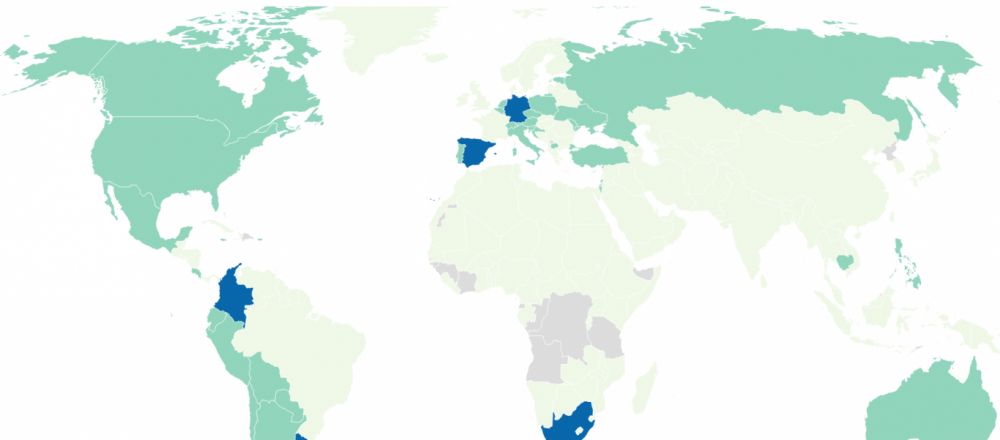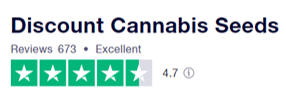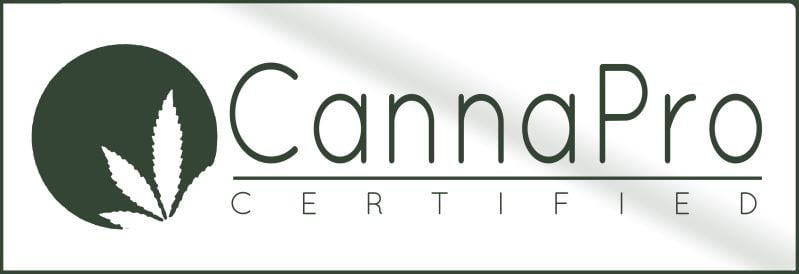
Cannabis Seeds - Legalising Cannabis.
As the UK falls behind with the rest of the world, we take a look at how other countries are legalising cannabis seeds.
The UK
Cannabis is currently a Class B drug in the UK, and anyone found in possession can face up to five years in prison.
Despite a growing body of evidence showing the world's favourite recreational drug to be safe, the UK is falling behind many other countries who are adopting progressive policies towards drug use.
A Private Member's Bill to allow the production, supply, possession and use of cannabis seeds and cannabis seeds resin for medicinal purposes; and for connected purposes, The Legalisation of Cannabis (Medicinal Purposes) Bill 2017-19 is currently progressing through the UK parliament and will have its second reading on Friday 23 February 2018.
In our discussions with the bill's sponsor, Paul Flynn (Labour MP for Newport West) Paul stated that the Bill has little chance of proceeding to law without support from the government.
Netherlands
Cannabis in the Netherlands is illegal, but is decriminalised for personal use. It is allowed to be consumed in coffee shops. Cannabis was first criminalised in the Netherlands in 1953, following earlier laws against its import and export in 1928. Cannabis seeds was banned much earlier in the Dutch colony of Suriname, in the early part of the 20th century and in Dutch Indonesiain 1927.
Cannabis has been available for recreational use in coffee shops since 1976. Cannabis products are only sold openly in certain local coffee shops and possession of up to 5 grams for personal use is decriminalised, however the police may still confiscate it, which often happens in car checks near the border. Other types of sales and transportation are not permitted, although the general approach toward cannabis was lenient even before official decriminalisation.
Since 2003, there has been a legal prescription drug known as "Mediwiet" available at Dutch pharmacies. There are five different types of medical cannabis in the Netherlands which contain Cannabidiol and almost no Tetrahydrocannabinol.
Denmark
Cannabis is illegal in Denmark for recreational use, but certain cannabis derivatives are allowed for medical use by prescription.
Cannabis sale and use, whilst illegal has been periodically unofficially tolerated in the Copenhagen neighborhood of Freetown Christiania, but the neighborhood moved to restrict the cannabis trade following a shooting in 2016.
The punishment for small amounts (up to 9.9g or 0.35oz) for personal use is typically a fine. In certain cases such as socially vulnerable people, a warning can be given instead of a fine. Larger quantities (more than 100g or 3.5oz) generally results in a prison sentence. Driving under the influence of cannabis is illegal and all but the smallest amounts of THC in a blood sample results in a fine and loss of the driver's licence.
Portugal
The Portuguese government introduced a new policy which decriminalised the possession and personal use of any drug if the amount was no more than a ten-day supply for one person. This includes cannabis, cocaine, heroin, MDMA/ecstasy, amphetamines and methamphetamines.
Many people having been watching how such a dramatic step would work out however it's very clear that decriminalisation hasn't had the severe consequences that its opponents predicted. As the Transform Drug Policy Institute says in its analysis of Portugal's drug laws, "The reality is that Portugal’s drug situation has improved significantly in several key areas. Most notably, HIV infections and drug-related deaths have decreased, while the dramatic rise in use feared by some has failed to materialise."
Poland
Possession of most drugs for recreational use, including cannabis is illegal in Poland. It was classified as a narcotic in 1951 but it was not until 1999 that possession and use of the drug became a crime. Since 2011, prosecutors have the discretion to drop the charges if the quantity of drugs seized is only a small amount. The medical use of cannabis was legalised in 2017. Poland legalized the medical use of cannabis in July 2017. The law went into effect in November 2017
Spain
Cannabis seeds in Spain is illegal for commercial purposes, but decriminalised for personal cultivation and use, and other purposes other than sale or trade. Using the legal gray areas in Spanish legislation cannabis clubs are a popular way for enthusiasts to obtain and use cannabis seeds as a technically-legal private collective.
In October 2005, the autonomous government in the region of Catalonia launched a program of therapeutic use of Sativex for 600 patients of a wide set of illnesses, from multiple sclerosis to cancer, in order to avoid nausea or to relax tense muscles. The project involved six hospitals, forty researchers and sixty drugstores. The product is presented as an atomizer to be taken orally and was delivered at drugstores inside some hospitals. The full text of the research initiative can be seen here in Catalan, from the Universitat Autònoma de Barcelona.
Italy
Cannabis seeds in Italy is illegal for recreational uses, but legal for limited medical uses since 2013. Possession of small amounts for personal use is a misdemeanor subject to fines and the suspension of documents (passports and/or drivers licences).
The sale of cannabis products is illegal and punishable by imprisonment; cultivation is likewise punishable by imprisonment, even if in small amounts and for exclusive personal use. Licensed cultivation for medical and industrial use is strictly regulated. In January 2013, Italy legalised the medical use of cannabis with a doctor's prescription.
Germany
Cannabis in Germany is legal for certain limited medical conditions but illegal for recreational usage, though possession of minor amounts is not always prosecuted.
On May 4th 2016 the Cabinet of Germany approved legislation allowing the use of cannabis for seriously ill patients who have consulted with a doctor and "have no therapeutic alternative". German Health Minister, Hermann Gröhe, presented the legal draft on the legalisation of medical cannabis to the cabinet which took effect on March 10, 2017. Licenses will be given by "Federal Institute for Drugs and Medical Devices" to companies for growing medical cannabis.
Ireland
Cannabis seeds in Ireland is illegal for recreational purposes. Use for medical purposes requires case-by-case approval by the Minister for Health. A bill to legalise medical uses of cannabis passed a second reading in Dáil Éireann (lower house) in December 2016.
The first licence for medical use of cannabis seeds oil was issued in December 2016 to allow Tristan Forde a two-year-old boy with Dravet syndrome to continue treatment begun in Colorado.
The Gardaí (Irish police) have a level of discretion when dealing with recreational cannabis seeds users. To procure a conviction any cannabis seized has to be sent for analysis to the Garda Forensic Science Laboratory. This, along with the time needed to process the arrest means that individual Gardaí may decide not to arrest for small amounts, but the drug will be seized and the name of the individual will be taken.
Possession of cannabis is an arrestable offense and in 2003, 53 per cent of all drug seizures and 70 per cent of all drug-related prosecutions were for cannabis seeds. Trafficking or possession with intent to supply are serious offenses under Irish law.
Malta
Cannabis in Malta is illegal but partially decriminalised, simple possession will still remain an "arrestable offense".
First-time offenders will be handed fines of between €50 and €100 in the case of cannabis possession. Repeat offenders will appear before a Drug Offenders Rehabilitation Board, headed by retired Chief of Justice, which will set conditions for rehabilitation. Breaching the conditions would be tantamount to a criminal offense.
France
Cannabis in France is illegal for personal use, but remains one of the most popular illegal drugs. Limited types of cannabis-derived products are permitted for medical uses. As of 8th June 2013, cannabis derivatives can be used in France for the manufacture of medicinal products. The products can only be obtained with a prescription and will only be prescribed when all other medications have failed to effectively relieve suffering.
The amended legislation decriminalises the production, transport, export, possession, offering, acquisition or use of speciality pharmaceutials that contains one of these (cannabis-derivative) substances, while all cannabis products must be approved by the National Medical Safety Agency (Agence nationale de sécurité du médicament – ANSM).
Belgium
Belgium has an unusual history in terms of drug policy. For decades after prohibition, all drugs were treated similarly harshly. At the turn of the 21st century, cannabis laws were relaxed and personal quantities tolerated.
Until 2003, there was no legal distinction between the various classes of controlled substances (such as the 'schedule' systems employed in many other countries), and a cannabis offence would be treated the same as a heroin or cocaine offence. In 2003, a new directive was issued that differentiated cannabis from other illegal drugs and introduced the concepts of public nuisance and problem drug use; the directive allowed for possession of cannabis seeds in small quantities to be decriminalized, provided the individual was over the age of eighteen and was not a problem drug user or involved in public nuisance.
Czech Republic
Cannabis in the Czech Republicis illegal for recreational use, but personal possession has been decriminalised since 1st January 2010 and medical cannabis has been legal since 1st April 2013.
A bill allowing cannabis to be legally available on prescription in pharmacies as a medicine was passed by the Czech Chamber of Deputies on 7th December 2012 with 126 votes for legalisation and 7 against (27 abstained and 46 were absent from the vote). The Czech Senate passed the bill on 30 January 2013. The bill also stipulated that only imported cannabis would be allowed for sale in the first year "to ensure standards." After that, sales may expand to include registered, domestic production that is strictly monitored.
The law came into effect on 1 April 2013 and since then medical use of cannabis has been legal and regulated in the Czech Republic. The law allows for 180 g of dry matter per month, as prescribed by specialised physicians, and can be obtained using an electronic prescription form.
USA
The use, possession, sale, cultivation, and transportation of Marijuana is illegal under federal law in the United States. However, the federal government has articulated that if a state passes a law to decriminalise Marijuana for recreational or medical use it can do so, under the condition that a regulation system for Marijuana is in place.
Marijuana is listed as a Schedule I substance under the Controlled Substances Act of 1970, the highest classification under the legislation. Part of the reason Marijuana remains illegal at the federal level is because it is classified as a Schedule I drug. A Schedule I drug, as defined by the Drug Enforcement Administration, is a substance that has a high potential of being abused by its users and has no acceptable medical uses.
Individual state laws do not always conform to the federal standard. State-level proposals for the rescheduling of cannabis have met with mixed success. As of November 9th 2016, the use of both recreational and medicinal cannabis seeds marijuana has been legalised in the states of Alaska, California, Colorado, Maine, Massachusetts, Nevada, Oregon, and Washington.
The District of Columbia has fully legalised recreational and medical marijuana, but recreational commercial sale is currently blocked by Congress. Twelve states have both medical marijuana and decriminalisation laws, Guam and Puerto Rico have legalised psychoactive medical marijuana, while another thirteen have only legalized non-psychoactive medical marijuana.
Canada
Marijuana was first banned in Canada in 1923, with regulated medical Marijuana becoming legal in 2001. In response to popular opinion, Justin Trudeau, the leader of the Liberal Party of Canada committed to legalising Marijuana for personal use while campaigning during the Canadian federal election in 2015.
The Liberals won the election with 184 seats, allowing the party to form a majority government with Trudeau as Prime Minister. The plan was to remove cannabis possession for personal consumption from the Controlled Drugs and Substances Act; however, new laws would be enacted for greater punishment of those convicted of supplying cannabis to minors and impairment while driving a motor vehicle.
In November 2015, Justice Minister Jody Wilson-Raybould said that she and the ministers of Health and Public Safety were working on specifics as to the legislation.
Mexico
Marijuana in Mexico has been illegal since 1920, but personal possession was decriminalised in 2009. Medical use for THC content less than 1% was legalised in 2017.
Australia
Marijuana is the most widely used illicit drug in Australia, with a reported one-third of all Australians aged 22 or older (about 5.8 million) having tried Marijuana and 1 million using it in the past year. It is estimated that 750,000 Australians use Marijuanaevery week, and approximately 300,000 smoke it on a daily basis.
Australia has one of the highest Marijuana prevalence rates in the world, and Australia's indigenous population has higher levels of Marijuana use. Although recreational Marijuana use is illegal in Australia, the country has largely avoided a punitive drug policy focusing on harm-minimisation strategies and a treatment framework embedded in a law-enforcement regime.
In recent years politicians have lent increasing support towards the legalisation of marijuana, with senators and politicians from both majority sides of the cabinet "throwing their support behind the legalisation of medical Marijuana".
On 24 February 2016, Australia legalised medicinal Marijuana at the federal level.
New Zealand
Marijuana is the fourth most widely used recreational drug in New Zealand, after caffeine, alcohol and tobacco, and the most widely used illegal drug. In the population of more than 4 million, 13.4% of those between the ages of 16–64 use cannabis. This ranks as the ninth highest Marijuana consumption level in the world.
The use of Marijuana in New Zealand is governed by the Misuse of Drugs Act 1975, which makes unauthorised possession of any amount of Marijuana illegal. There are political efforts to remove penalties on its use for those over 18 years of age. In October 2017, following the ascension of a Labour/Green/New Zealand First coalition to government, the Greens announced a nationwide referendum of the legality of Marijuana for both medical and personal use.


DISCLAIMER: To comply with UK law, Discount Cannabis Seeds sells Cannabis Seeds for souvenir and collection purposes only. Discount Cannabis Seeds accepts no liability for customers purchasing them for any other purposes.

Office Address:
PLEASE NOTE OUR BUSINESS IS ONLINE ONLY, NO SEEDS ARE FOR SALE AT OUR OFFICE ADDRESS
49 Station Road
Polegate
East Sussex
BN26 6EA
Email:
[email protected]

Find out about our experience with Trustpilot > DCS & TRUSTPILOT

Discount Cannabis Seeds have been awarded certification by Cannabis Professionals, CannaPro - the trade association for the UK’s cannabis industry.
Copyright © 2024,


